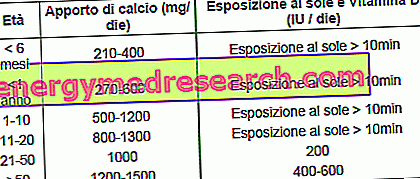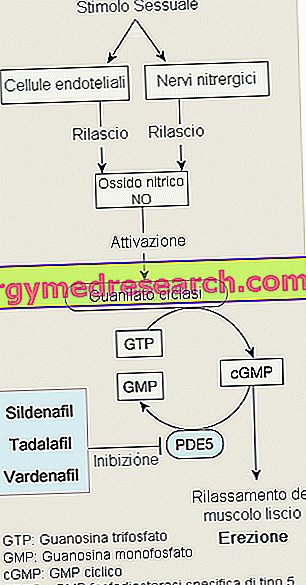PEPTAZOL ® is a drug based on Pantoprazole.
THERAPEUTIC GROUP: Antireflux - Antiulcer - Inhibitors of the acid pump
IndicationsAction mechanismStudies and clinical effectiveness Usage and dosage instructionsWarnings Pregnancy and lactationInteractionsContraindicationsUndesirable effects
Indications PEPTAZOL ® Pantoprazole
PEPTAZOL ® is indicated in the treatment of symptoms associated with gastroesophageal reflux, such as heartburn, acid regurgitation and dysphagia, and in the prevention of esophagitis, gastric and duodenal ulcers induced by prolonged use of non-steroidal anti-inflammatory drugs.
Mechanism of action PEPTAZOL ® Pantoprazole
PEPTAZOL ® is a pantoprazole-based drug, an active ingredient belonging to the pharmacological category of proton pump inhibitors.
Taken orally, this passes undamaged the gastric barrier thanks to the gastroresistant formulation, being effectively absorbed at the duodenal level and distributed to the various tissues, bound to plasma proteins.
Its therapeutic action, however, is carried out exclusively at the level of the gastric canaliculi, where the acidic environment allows its activation and the consequent inhibition of the gastric proton pump, involved in the acidification of the intragastric environment.
Its inhibition, which is guaranteed both at the basal and inducible levels, persists for at least 24 hours, a time necessary for the parietal cell to synthesize new non-inhibited proteins.
After a short half-life, pantoprazole is metabolised to the hepatic level thanks to specific cytochrome p450 isoforms and subsequently eliminated by about 80% through the renal route.
Compared to its predecessors such as omeprazole, this active ingredient, while essentially maintaining the same therapeutic effects, is characterized by a better pharmacokinetic profile, which takes the form of faster action time and better bioavailability.
Studies carried out and clinical efficacy
1. THERAPEUTIC POWER OF PANTOPRAZOLE
The evaluation of the therapeutic efficacy of pantoprazole, conducted through the evaluation of the 24-hour intragastric pH, showed an efficacy comparable to that of omeprazole, with a more efficient pharmacokinetic profile. It is however important to reiterate that these studies have been conducted for well-defined therapeutic ranges.
2. PANTOPRAZOLE AND REFLUX DUODENO GASTRO ESOFAGEO
The administration of pantoprazole, in patients suffering from duodeno-gastro-oesophageal reflux, has proved particularly effective in normalizing the episodes and in significantly reducing the associated symptomatology, with a particular reduction in episodes of heartburn and nocturnal acid regurgitation.
3.PANTOPRAZOLE AND TYPE II DIABETES
Recent evidence has suggested a role of gastrin in improving the conditions of patients with type II diabetes, significantly reducing the glycated hemoglobin content. In this regard, pantoprazole, which is able to guarantee a significant increase in serum gastrin levels, could be important in the treatment of diabetic pathology.
Method of use and dosage
PEPTAZOL ® pantoprazole 20-40 mg gastro-resistant coated tablets:
the dosage of a 20 mg tablet per day appears to be the most effective in the treatment of both gastro-oesophageal reflux and the prevention of esophagitis and gastric and duodenal ulcers.
In most cases, a treatment lasting 2-4 weeks is able to guarantee a good therapeutic success with the total remission of the disease, although in some cases it may be necessary to resort to maintenance doses or to intake one-off after symptoms appear.
In any case, PEPTAZOL ® should be taken under close medical supervision, especially for patients at risk.
Warnings PEPTAZOL ® Pantoprazole
PEPTAZOL ® should be taken under close medical supervision in patients with liver and kidney disease, in order to prevent unpleasant side effects.
Pantoprazole therapy may mask some important signs and symptoms for a correct diagnosis of malignant diseases affecting the gastro-intestinal tract, thus delaying diagnosis and subsequent therapeutic intervention.
Therefore it would be advisable for the doctor to carry out a careful clinical evaluation of the patient, before starting PEPTAZOL ® therapy
It is also necessary to remember, that hypochloridria induced by prolonged administration of pantoprazole, could determine a deficit of absorption of vitamin B12 with consequent important on the state of health of the patient.
The presence of dizziness, drowsiness and dizziness after taking pantoprazole, could make the use of machinery and driving vehicles dangerous.
PREGNANCY AND BREASTFEEDING
The presence of studies in the literature that have shown a possible fetotoxicity of pantoprazole, when taken during pregnancy, suggest to avoid taking this drug during the whole pregnancy period.
The absence of pharmacokinetic studies, useful to characterize the possible secretion of the active ingredient in breast milk, suggest to suspend breastfeeding following the intake of PEPTAZOL ® during breastfeeding.
Interactions
The various pharmacokinetic studies are aimed at characterizing the influence of hepatic metabolism of pantoprazole, supported by cytochrome p450, on the pharmacokinetic properties of active ingredients such as carbamazepine, caffeine, diazepam, diclofenac, digoxin, ethanol, glibenclamide, metoprolol, naproxen, nifedipine, phenytoin, piroxicam, theophylline and oral contraceptives, metabolized by the same enzyme.
It would therefore be useful, especially in the case of anticoagulant drugs such as warfarin, to monitor the concentrations of these active ingredients in order to avoid the onset of unpleasant side effects.
Hypochloridria and the reduction of the acid content of the stomach could lead to a significant reduction in drugs such as the asanavir when taken concomitantly with pantoprazole.
Contraindications PEPTAZOL ® Pantoprazole
PEPTAZOL ® is contraindicated in patients with known hypersensitivity to the active substance or one of its excipients. Given the possibility of cross reactivity it would be good to avoid taking the medicine even in case of hypersensitivity to compounds similar to pantoprazole.
Undesirable effects - Side effects
Although clinical trials and post-marketing experience have shown no clinically significant adverse reactions, taking PEPTAZOL ® may be associated with the appearance of nausea, vomiting, diarrhea, flatulence, constipation, drowsiness and dizziness.
More serious side effects have been observed above all in patients at risk, for which the presence of hepatic, renal, muscular, hematological and cutaneous damages has been documented, readily regressible once the therapy is suspended.
Note
PEPTAZOL ® a drug sold only under medical prescription.



